Numbers 13, 14 describe the open door of opportunity God gave His people when they arrived at Kadesh Barnea.
The Promised Land is not heaven! Not by a long shot. But it was bountiful. That land had been given to Abraham some 1500 years earlier so there was no Title Deed dispute. The squatters living in the land knew they were illegals.
Their power had been shattered. They were terrified of the Israelites and their God.
Forty years later when finally the people of Israel did finally enter the land, a Canaanite woman named Rahab gladly changed her religion and became a true Jewish proselyte, "Now before the spies lay down, Rahab came up to them on the roof,
and said to the men: “I know that the LORD has given you the land, that the terror of you has fallen on us, and that all the inhabitants of the land are fainthearted because of you.
“For we have heard how the LORD dried up the water of the Red Sea for you when you came out of Egypt, and what you did to the two kings of the Amorites who were on the other side of the Jordan, Sihon and Og, whom you utterly destroyed.
“And as soon as we heard these things, our hearts melted; neither did there remain any more courage in anyone because of you, for the LORD your God, He is God in heaven above and on earth beneath.
“Now therefore, I beg you, swear to me by the LORD, since I have shown you kindness, that you also will show kindness to my father’s house, and give me a true token,
“and spare my father, my mother, my brothers, my sisters, and all that they have, and deliver our lives from death.” (Joshua 2:8-12)
Egypt is a “type of the world” system, the Socio-Economic world order, the culture we were born into. It’s all a fallen, ruined system ruled by a bent angel, Satan, the “god of this world.” Back then, Egypt had more gods than Carter had pills, so when Moses insisted that there only one true God the Hebrews should have known but now they have have forgotten. The boiler plate chapters of the five books Moses wrote fill up the details. This is all important reading telling us much about the One God over all.
The Pentateuch -- the first five books of our Bible -- trace for us the spiritual journey of an individual from sin into belief and to glorification in Christ. The whole Old Testament was written so that we might see in a vivid way what the New Testament declares to be true. The New Testament confirms this. The New Testament says that all these events involving Israel happened as an example to us, and were written down for our instruction since they are pictures of what we will go through, as we move along with Jesus Christ. (1 Corinthians 10:11)
Now, the book of Genesis is a picture of humanity in all its strident, clamant need. It portrays what we look like as a result of the fall of man and the consequent need for God in our life. From Exodus to Deuteronomy, we have the way from Egypt to Canaan as a picture of the way the Christian will move from the slavery of sin to the freedom of victory in Christ, victory in the midst of his enemies. This is precisely the spiritual journey God has called us to, so these books become exceedingly helpful for us. If you read the Old Testament as nothing but a history of ancient events concerning people who have long since disappeared, it will be the dullest, most boring reading you can find. However, if you read it as a picture of what is happening in your life, vividly displayed in terms of these people of old, you will find fascinating reading indeed.
The book of Exodus is a picture of God's delivering power. There we have the three great events in the early life of Israel -- the Passover in Egypt, the crossing of the Red Sea, and the giving of the law on Mt. Sinai. These correspond with God's work in us. Like the Israelites in the Passover, where the blood was sprinkled for them, we too realized that the angel of death had passed over us in the blood of Jesus Christ shed on the cross and by that event, we were saved. We too moved out across the Red Sea when we openly declared our redemption in Christ and cut off the ties that bound us to the world. We came into the wilderness and heard the law of Moses when we began to learn, perhaps for the first time in our lives, the kind of God with whom we had to deal, a God of utter holiness, of complete righteousness, utterly consistent with himself.
Then in the book of Leviticus we learn how to worship, what it is this kind of God demands, and how a God of such surpassing holiness can dwell with men and women like ourselves. Here we discover the means by which God makes possible the necessary intercourse between God and man.
Now we come to the book of Numbers. In Numbers we have dramatically set forth what is perhaps the hardest lesson a Christian has to learn -- to trust God instead of his own reason. This is where we struggle, isn't it? We think that what we want to do and the way we want to do it is the right way. The hardest struggle we have, even as these Israelites had, is to learn to believe that God knows what he is talking about and that what he tells us is the truth, and is for our good, and to operate on that basis despite what friends and others around are telling us concerning the right way. Proverbs puts it so graphically, "There is a way which seems right to a man, and its end is the way to death." (Proverbs 14:12) The book of Numbers is a picture of that experience in the believer.
You will recognize, of course, that it is the experience of Romans 7 where the unhappy, defeated Christian, who is his own worst enemy, is being disciplined by God because God as a father loves him. He is experiencing in the midst of this discipline the fatherly love and care of God and protection from his enemy. That is what the book of Numbers portrays. It is a picture of people who have come out of Egypt but who have not yet reached Canaan. They had the faith to follow God out of the bondage and slavery of sin but have not yet come into the fullness of liberty and rest in the Holy Spirit -- Canaan being a picture of the Spirit-filled life.
This book falls into three divisions. The first is included in chapters one through ten, and is a picture of God's provision for guidance and warfare. These are the two critical needs of Israel in their march from Mt. Sinai, where the law was given, until they came north across the wilderness of Paran to the edge of the promised land, the land of Canaan. On the way they would need guidance, because this was a trackless wilderness; moreover, they would need protection, for the wilderness was occupied by fierce, hostile tribes that opposed them every time they turned around.
All of this, you will recognize, is an exact picture of our need, isn't it? We need guidance because of the clever subtleties of the world in which we live and the ease with which we can be misled and derailed; and we need protection because of the enemies among whom we dwell, those within us and round about us, who would defeat us if they could.
In this section that begins with the arrangement of the camp, note two things -- the position of the tabernacle with the tribes on every side, and a numbering of the armed men of Israel. These are pictures for us of the need for defense against the enemies of God. God provides all the strategy and resources necessary to meet every enemy that comes our way. There is not only the order of the camp (the tabernacle surrounded by the tribes), but also there is the cloud over the camp by day and the pillar of fire by night -- all of which (tabernacle, cloud, and pillar) picture for us the great truth of the indwelling of the Holy Spirit. We have God in our midst. That is a great truth. He is able to direct and to lead us through the wilderness of the world by the guidance of the Word. We are led by the cloud and the fire, just as Israel was led, and we are to be obedient to that leading. This is all the potential we need to get us from the place of the law (the knowledge of the holiness of God) to the rest in the Spirit which the land of Canaan represents. We have everything we need, just as Israel had all that they needed.
But what happened? Well, the major part of this book, from chapter eleven through twenty-one, is a description of the murmuring and rebelling of the people. It is a most remarkable fact, but one every pastor and parent is fully aware of, that rebellion and willful disobedience to God always begin with murmuring and critical complaining. Whenever you find yourself beginning to complain and murmur and whisper and carrying on a carping campaign against the circumstances in which you find yourself, you know that you are on the threshold of rebellion, because it always begins there. Notice that there are three kinds of murmuring -- three levels of complaint -- that occur throughout the wilderness journey.
There was, first of all, the complaint of the people against the circumstances. They complained about the manna and about the lack of water; they complained about the meat and about the wilderness itself. They were always murmuring. This was their favorite outdoor sport, it seems, and they worked at it day and night. Nothing was right, not even the manna, the miraculous supply of God every day. I wonder if you know what manna typifies in your life? Well, it typifies the Holy Spirit. For the manna, it says, tasted like oil and honey mixed together into a thin w wafer. Oil and honey are both symbols of the Holy Spirit. On this they were to feed. But it was just a thin wafer. It wasn't enough to satisfy them -- although it was enough to sustain them -- because God never intended them to live so long in the wilderness. He intended them to get on over into the land of Canaan and begin to feed upon the abundant food there. But the! got sick of manna. Who wouldn't after forty years, when it was only intended for a few days? Manna for breakfast, manna for lunch, manna for supper. Nothing but manna, manna, manna -- until finally they began to complain and rebel.
Yet it wasn't God's fault. Manna was never intended to satisfy. It was merely a temporary provision until they could get into the fullness of the land, just as God never intended you to live on the experience of the meager contact with the Holy Spirit you get in a defeated Christian experience. Go on into the land of abundant living. That is where you will find satisfaction.
They also complained about the lack of meat, so God gave them meat for a month until they were sick, and then they complained about the abundance of meat. So on it went. In murmuring they always thought about Egypt and this is a picture for us of a degenerating Christian experience. All they could think of was the meat, the melons, the cucumbers, leeks, onions, and garlic of Egypt. Imagine dreaming of that kind of food! But that is what Egypt meant to them. They had no thought of Canaan because they had no knowledge of it. All they had heard were sermons about Canaan. They had no experience of it. All they could remember was the world out of which they had come. As Major W. Ian Thomas puts it in his book, The Saving Life of Christ,
What are these a picture of? A cucumber is 12 inches of indigestion! Leeks and onions and garlic have a very peculiar property about them. They are the kind of food you eat in private but everybody knows about it in public.
Now this murmuring against the circumstances in which they found themselves was met by the judgment of God in three forms -- fire, plague, and poisoned serpents. I wonder if you can see in each of these a picture of the inevitable result of whining, complaining, and murmuring as a Christian. When we begin to complain about where God has put us and the kind of people he has put us among and the kind of food we have to eat and all the other circumstances of our life, we discover that the fire of gossip, scandal and slander; the plague of anxiety and nervous tension that takes its daily toll of our life; and the poison of envy and jealousy are released in our own life to sap our strength. These things are inevitable.
Not only did the Israelites murmur against their circumstances, but there were several times when they murmured against the blessing of God. Imagine that. They came at last to the edge of the land of Canaan, standing on the very border line at Kadesh-barnea, and there God said to them, "Now move forward. Possess the land." They had sent out the spies and had learned that it was a land flowing with milk and honey. The spies had brought back grapes so large that they had to carry them on a stick between the shoulders of two men, the bunch was so heavy. But they also knew that it was a land full of giants, and because of the giants they were afraid to go forward. They thought the giants were greater than God, so they refused to go on into blessing. They resisted God's efforts to bless them. They were glad to get out of Egypt but they were unwilling to go on into Canaan. This is why they wandered for forty years in the wilderness. The inevitable judgment to them was that if they would not go into blessing, they must experience the full results of a failure before moving on in God's program.
Many, many Christians are living right here today, square in the middle of a howling wilderness, living on a minimum supply of the Holy Spirit -- enough to keep them going, and that's all. They spend their lives in complaining, unending murmuring against their circumstances, yet still are unwilling to move on into the land that God has fully provided for them. This is the problem of so many. While you can be sustained in the wilderness, you will never be satisfied, never. And that is why the wilderness experience is always marked by a complaining heart and an unending criticism of something or someone. In this book it never ended until a new generation was ready to enter the land. God said, "Not one of you older than twenty years who went back at Kadesh-barnea will ever enter this land, except two men." (Numbers 14:29, 30) Those two men -- Caleb and Joshua -- were men of faith who went on.
Thus it isn't until we make a new beginning in our lives, when we come to the end of ourselves and it seems almost as if we begin again in the Christian life, that we can go on after we have resisted the work of the Spirit in taking us into the land. This is why so many Christians never seem to come to victory until they have a crisis experience, a new beginning, and then they enter into the land.
The Israelites had one other occupation in the wilderness besides murmuring, and that was burying. The mark of the wilderness is that it is a land of death. Did you ever think how many Israelites died in those forty years in the wilderness? This book begins with a census of Israel, and it totals 603,000 men alone, men able to go out to warfare, who are at least twenty years old. Six hundred and three thousand. Most of those men were married. That meant an equal number of women, as well as all the children that were in that camp. Many have estimated the total population at that time to have been well over two million people. Yet in the wilderness, in the space of forty years, one million two hundred thousand of them died, an average of 82 per day, so there was nothing but a great big funeral going on all the time. The wilderness was one huge graveyard. No wonder they had to move so often. You can imagine why, as literally scores of people would die every day through that forty years' time. What a picture of what Romans says, "to set the mind on the flesh is death." (Romans 8:6)
Finally, there is one other form of murmuring here; murmuring against authority. They murmured against circumstances; they murmured against God's effort to bless them, and they murmured against the authority of God expressed through Moses! They said, "All the people are holy. Moses and Aaron, why do you put on airs as though you were better than we are? All of the people of God are holy, in their own eyes." They judged themselves by their own standards and thus rebelled against the properly constituted authority in their midst. They resisted with all their strength the suggestion that these two should be anything more than they.
Have you noticed that this is another characteristic of the defeated Christian? He always thinks he is holy enough, that he is as holy as he needs to be, and he resents anyone else who seems to be ahead of him or to exercise any authority. He resists any attempt to suggest to him that he ought to be more than he is. That is what these people did.
God met this attitude with the severest judgment of all. There is that dramatic account of the rebellion of Korah and Abiram when they openly challenged the authority of Moses and Aaron. God divided the camp in half and said, "Moses and Aaron you stand over here. Korah and your group, stand over here, and the people stand there." And then he said, "Stand back. I am going to show you who is in authority here." He led Moses to say, "If these people live out their lives as normal ordinary men. then it is a sign that God is not with me, but if God does something absolutely new and the ground opens up beneath them and swallows them alive, it is an indication that God is with me." And as he said the words, the ground opened up beneath Korah and Abiram and all their families, and they went down alive into the pit. Thus God established his authority through Moses by this remarkable judgment. When we rebel against authority, God judges with the utmost severity.
Through all this. interestingly enough, the murmuring went on, in spite of the severity of this judgment, until two things took place. One was associated with the rebellion of Korah and Abiram and the other was in connection with the serpents that came and bit them at the time they complained about the food. Do you remember what Moses did to stop the rebellion at the death of Korah and Abiram? All the leaders of the twelve tribes took rods and put them before the Lord. Aaron's rod was included among them, and when they came back in the morning, they found that Aaron's rod had grown branches, the branches had blossomed and the blossoms had grown fruit and there were almonds hanging on the branches, all taking place overnight. Of the twelve rods, only Aaron's blossomed. This is a picture of the resurrection life. In this, God is saying that the only ones who have the right to bear authority are those who walk in the fullness and power of resurrection life.
Then when they murmured about the food, he sent poison serpents among them. In the third chapter of John our Lord makes reference to this story. Moses cured the effects of the poison by lifting up a brazen serpent on a pole, and all who looked at it were healed. By that God was saying the only cure of sin of any kind, even sin in the Christian, is a look again at the cross and the way it utterly repudiates all human endeavor and human worthiness by putting Christian living solely on the basis of the resurrection life of Jesus Christ. "And as Moses lifted up the serpent in the wilderness, so must the Son of man be lifted up, that whoever believes in him may have eternal life." (John 3: 14)
The latter part of the book, chapters twenty-one through twenty-six, is a remarkable record of protection in spite of failure. Here you find victory over the enemies around, the outward forces of King Arad, Sihon, Og, King of Bashan, and the attempts of Balaam, the false prophet to try to undermine the people of God, which resulted only in greater blessing. All of it is simply saying to us, in the most vivid language God can find, that though we are disobedient, though we are rebellious, though we turn and refuse to go into blessing, though we wander in a wilderness of defeat and despair and barrenness year after year after year -- nevertheless, the Holy Spirit will never leave us. Even in the midst of our weakness, he grants us protection from our enemies and deliverance from complete defeat. What a remarkable book. But what a picture of what Paul sums up in the poignant phrase, "Wretched man that I am! Who will deliver me from this body of death?" (Romans 7:24) That is why we need to move on into Deuteronomy, where we get the second law, the law of the Spirit of life in Christ Jesus --Ray Stedman, The Hardest Lesson
![]()
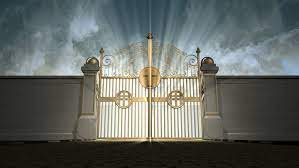
 There are many times in life when we have what looks like an offer that is too good to be true. After considering the challenge set before us, mulling over our options, we turn down the opportunity to enter in. “Too risky.” “Too dangerous.” “Too many chances for something to go wrong.” “I’ll err on the side of caution and hope for something safer down the road.” “I’m is safe place now, though it’s far short of what was promised me back in Egypt when I signed up.” “I’m in good company for now, ‘birds of a feather flick together’ they say.” “My best judgment is to back off.” "If I'm lucky we'll get there eventually by a safer route." If your boss sees that you are ready, would you say "yes" to a promotion? It all depends, right? How about coming out of the closet and going public about your relationship with Jesus? Not me!
There are many times in life when we have what looks like an offer that is too good to be true. After considering the challenge set before us, mulling over our options, we turn down the opportunity to enter in. “Too risky.” “Too dangerous.” “Too many chances for something to go wrong.” “I’ll err on the side of caution and hope for something safer down the road.” “I’m is safe place now, though it’s far short of what was promised me back in Egypt when I signed up.” “I’m in good company for now, ‘birds of a feather flick together’ they say.” “My best judgment is to back off.” "If I'm lucky we'll get there eventually by a safer route." If your boss sees that you are ready, would you say "yes" to a promotion? It all depends, right? How about coming out of the closet and going public about your relationship with Jesus? Not me!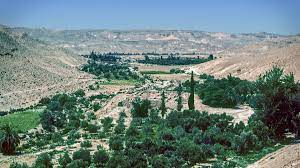
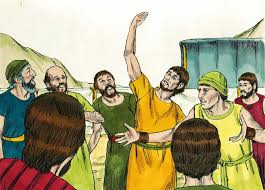
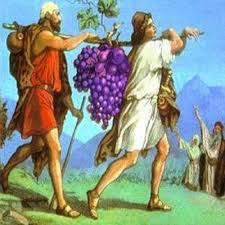 At the end of forty days they returned from spying out the land. And they came to Moses and Aaron and to all the congregation of the Israelites in the wilderness of Paran, at Kadesh; they brought back word to them and to all the congregation, and showed them the fruit of the land. And they told him, ‘We came to the land to which you sent us; it flows with milk and honey, and this is its fruit. Yet the people who live in the land are strong, and the towns are fortified and very large; and besides, we saw the descendants of Anak there. The Amalekites live in the land of the Negeb; the Hittites, the Jebusites, and the Amorites live in the hill country; and the Canaanites live by the sea, and along the Jordan.’
At the end of forty days they returned from spying out the land. And they came to Moses and Aaron and to all the congregation of the Israelites in the wilderness of Paran, at Kadesh; they brought back word to them and to all the congregation, and showed them the fruit of the land. And they told him, ‘We came to the land to which you sent us; it flows with milk and honey, and this is its fruit. Yet the people who live in the land are strong, and the towns are fortified and very large; and besides, we saw the descendants of Anak there. The Amalekites live in the land of the Negeb; the Hittites, the Jebusites, and the Amorites live in the hill country; and the Canaanites live by the sea, and along the Jordan.’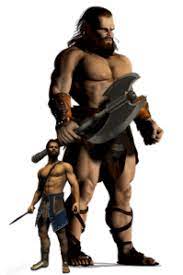 But Caleb quieted the people before Moses, and said, ‘Let us go up at once and occupy it, for we are well able to overcome it.’ Then the men who had gone up with him said, ‘We are not able to go up against this people, for they are stronger than we are.’
But Caleb quieted the people before Moses, and said, ‘Let us go up at once and occupy it, for we are well able to overcome it.’ Then the men who had gone up with him said, ‘We are not able to go up against this people, for they are stronger than we are.’ 
 And the men whom Moses sent to spy out the land, who returned and made all the congregation complain against him by bringing a bad report about the land— the men who brought an unfavorable report about the land died by a plague before the Lord. But Joshua son of Nun and Caleb son of Jephunneh alone remained alive, of those men who went to spy out the land.
And the men whom Moses sent to spy out the land, who returned and made all the congregation complain against him by bringing a bad report about the land— the men who brought an unfavorable report about the land died by a plague before the Lord. But Joshua son of Nun and Caleb son of Jephunneh alone remained alive, of those men who went to spy out the land.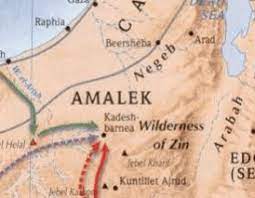

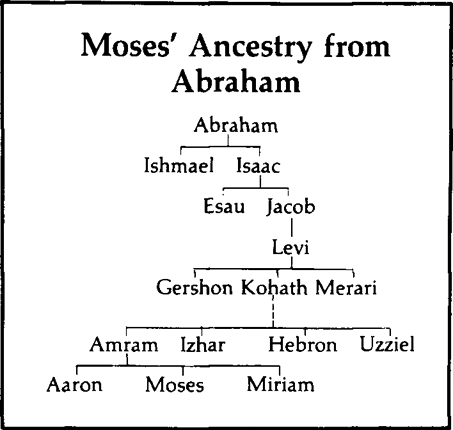
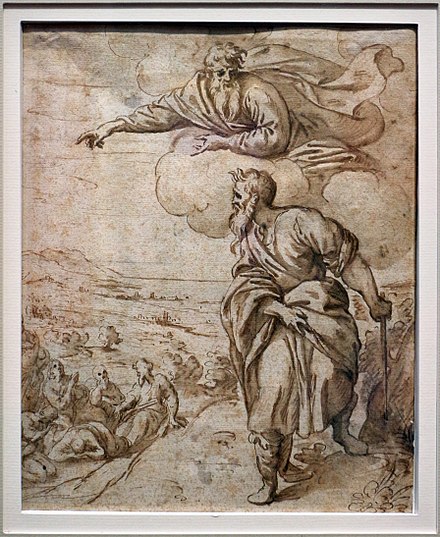
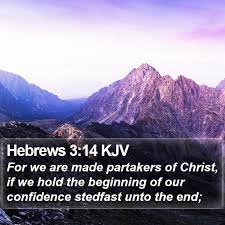
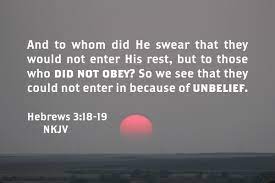
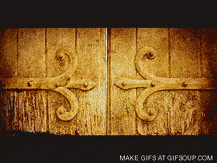



 September 16, 2021. February 8, 2023. September 15, 2023.
September 16, 2021. February 8, 2023. September 15, 2023.